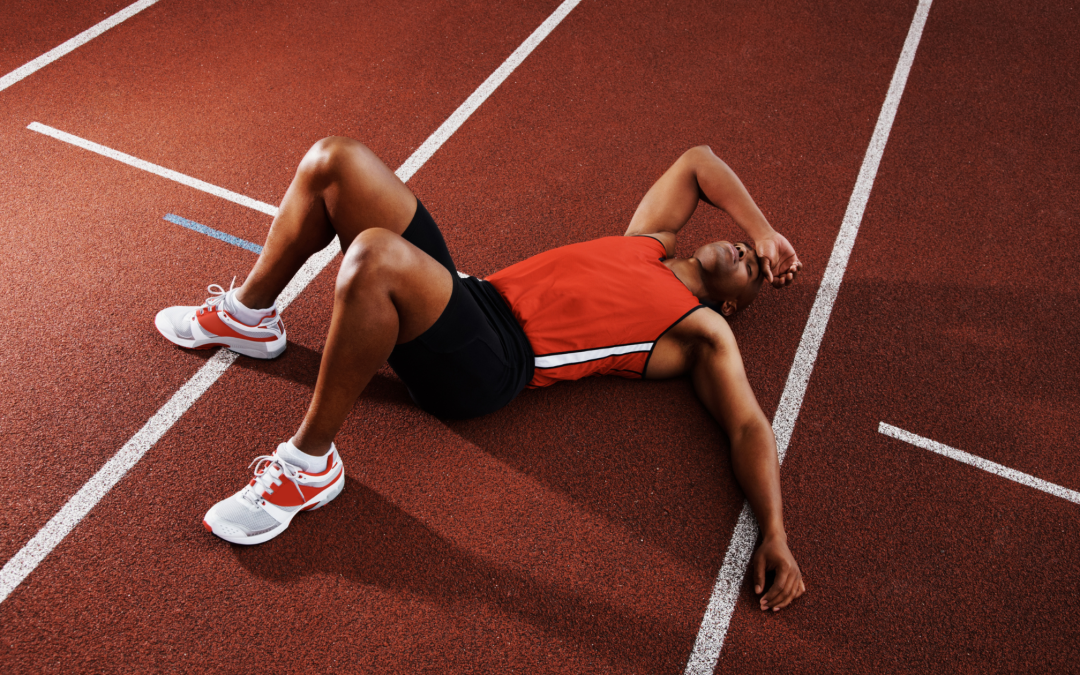Sleep – it can make you or break you! Have you ever had a bad night’s sleep? Or a couple in a row? How do you feel? Sleep is not just for resting; it’s a critical component of athletic success and feeling good in general. In this blog, Dr. Thomas dives deep into the importance of quality sleep for athletes and how it directly impacts performance, recovery, and overall well-being.
When it comes to getting proper sleep (as an athlete, or in general) Dr. Thomas has plenty to say about this topic! He first wants to remind us that nearly ⅓ of adults sleep less than the recommended 7 hours per night, according to the CDC. There is an even larger deficit in teens. Two-thirds of high school students sleep less than 8 hours per night on school nights. His recommendation is 8-10 hours. Sleep directly supports athletic performance, including muscle repair, hormone regulation, and cognitive function. In athletics, it is extremely important to get a good night’s rest.
In the pursuit of peak performance, athletes often focus on rigorous training, nutrition, and recovery strategies. However, one crucial element that is frequently overlooked is the quality of sleep. Let’s dive into why good sleep quality is not just important but absolutely essential for athletes striving to reach their full potential.
Quality vs. Quantity: It’s a myth that more hours in bed equate to better sleep. Sleep quality is paramount for athletes. Good sleep quality is not just a luxury for athletes; it is a fundamental pillar of performance optimization and overall health and well-being.
Physical Recovery and Repair: During sleep, the body undergoes essential processes for repair and recovery. High-quality sleep enables muscles to recover from the stresses of training, promoting optimal growth and repair.
Enhanced Performance: Adequate sleep is directly linked to improved athletic performance. Athletes who prioritize sleep consistently demonstrate better speed, agility, accuracy, and overall physical performance compared to those who are sleep-deprived.
Optimal Cognitive Function: Sleep plays a vital role in cognitive function, including memory consolidation, decision-making, and reaction time. Athletes who get sufficient sleep are better equipped to maintain focus, make split-second decisions, and execute complex movements with precision.
Injury Prevention: Quality sleep is associated with a reduced risk of injury among athletes. Sleep deprivation can lead to impaired coordination, decreased proprioception, and slower reaction times, increasing the likelihood of accidents and injuries during training and competition.
Hormonal Balance: Sleep influences the secretion of key hormones involved in athletic performance, such as growth hormone, testosterone, and cortisol. Disruptions in sleep patterns can disrupt hormone levels, negatively impacting recovery, metabolism, and muscle growth.
Mental Resilience and Well-being: Adequate sleep is essential for maintaining mental resilience, emotional stability, and overall well-being. Athletes who prioritize sleep report lower levels of stress, anxiety, and mood disturbances, enabling them to better cope with the demands of training and competition.
Recovery and Adaptation: Sleep is a crucial time for the body to adapt to training stimuli and maximize the benefits of workouts. Quality sleep promotes the release of anabolic hormones that facilitate muscle repair, growth, and adaptation to training stressors.
Consistency and Routine: Establishing a consistent sleep schedule and prioritizing sleep hygiene are key components of successful athletic performance. Consistent sleep patterns help regulate the body’s internal clock, optimizing circadian rhythms and promoting restorative sleep cycles.
In conclusion, good sleep quality is not just a luxury for athletes; it is a fundamental pillar of performance optimization and overall health and well-being. By recognizing the importance of quality sleep and implementing strategies to prioritize rest and recovery, athletes can unlock their full potential and achieve extraordinary feats in their respective sports.

